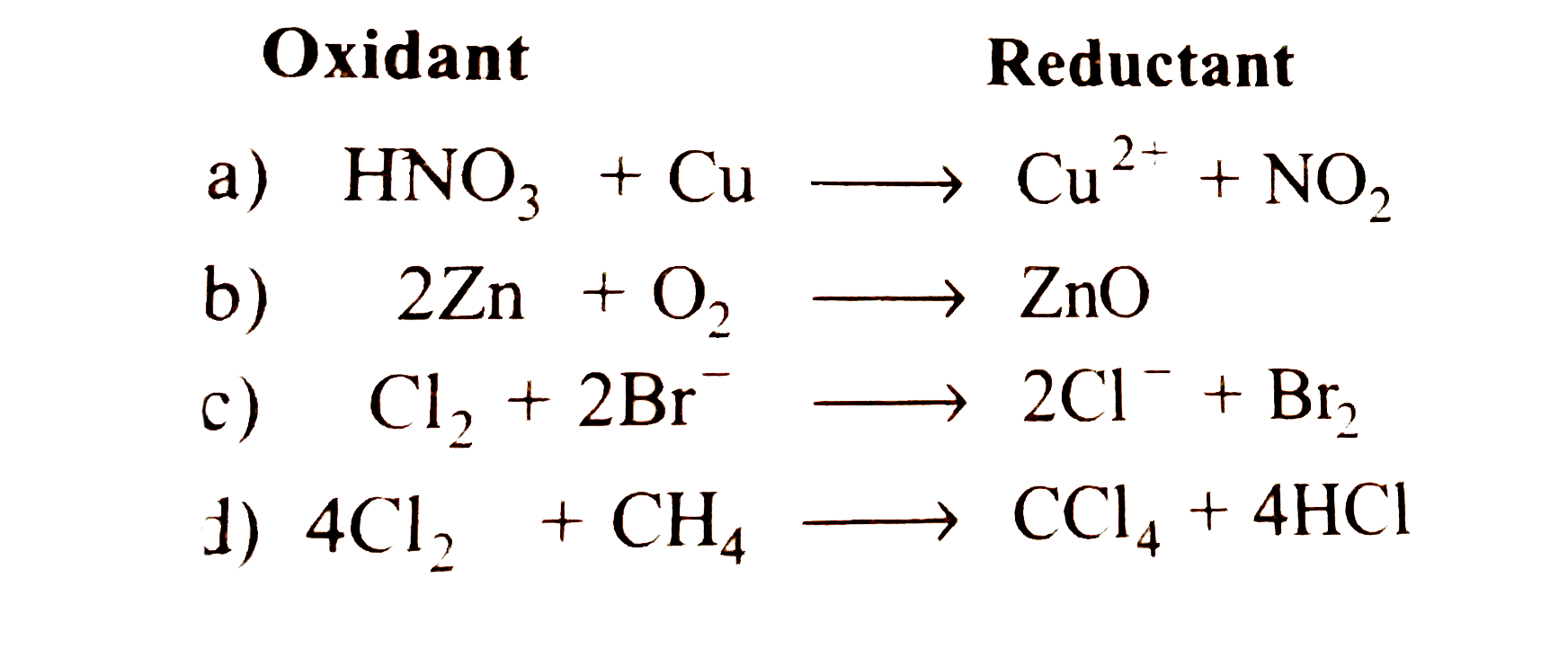If oxidation means losing electrons , what is meant by reduction .
Reduction means gain of one or more electrons.
Topper's Solved these Questions
- CHEMICAL REACTIONS AND EQUATIONSBOOK - TARGET PUBLICATIONCHAPTER - CHEMICAL REACTIONS AND EQUATIONSEXERCISE - Chapter Assessment
11 Videos
- CHEMICAL REACTIONS AND EQUATIONSBOOK - TARGET PUBLICATIONCHAPTER - CHEMICAL REACTIONS AND EQUATIONSEXERCISE - Give balanced chemical equation
26 Videos
- CHEMICAL REACTIONS AND EQUATIONSBOOK - TARGET PUBLICATIONCHAPTER - CHEMICAL REACTIONS AND EQUATIONSEXERCISE - Questions based on paragraph
20 Videos
- CARBON COMPOUNDSBOOK - TARGET PUBLICATIONCHAPTER - CARBON COMPOUNDSEXERCISE - Chapter Assessment(Give scientific reasons.)
4 Videos
- METALLURGYBOOK - TARGET PUBLICATIONCHAPTER - METALLURGYEXERCISE - CHAPTER ASSESSMENT
19 Videos
Similar Questions
Knowledge Check
Alkali metals lose electrons in _______.
As-orbitalsBp-orbitalsCd-orbitalsDf-orbitalsWhich of the statements is/are true?
1. The process of oxidation leads to gain of electrons.
2. The process of oxidation leads to loss of electrons.
3. The process of reduction leads to gain of electrons.
4. The process of reduction leads to loss of electrons.
Select the correct answer from the codes given below.A1 and 4B2 and 3COnly 1DOnly 4Oxidation and reduction process involves the transaction of electrons. Loss of electrons is oxidation and the gain of electrons is reduction. It is thus obvious that in a redox reaction, the oxidant is reduced by accepting the electrons and the reductant is oxidised by losing electrons. The reactions in which a species disproportionates into two oxidation states (lower and higher) are called disproportionation reactions. In electrochemical cells, redox reaction is involved, i.e., oxidation takes place at anode and reduction at cathode.
The reaction Cl2→Cl−+ClO−3 is:AoxidationBreductionCdisproportionationDneither oxidation nor reduction
What is meant by oxidation and reduction?
View SolutionWhat is meant by oxidation and reduction?
View SolutionOxidation and reduction process involves the transaction of electrons. Loss of electrons is oxidation and the gain of electrons is reduction. It is thus obvious that in a redox reaction, the oxidant is reduced by accepting the electrons and the reductant is oxidised by losing electrons. The reactions in which a species disproportionates into two oxidation states (lower and higher) are called disproportionation reactions. In electrochemical cells, redox reaction is involved, i.e., oxidation takes place at anode and reduction at cathode.
Select the correct statement:
View SolutionOxidation and reduction process involves the transaction of electrons. Loss of electrons is oxidation and the gain of electrons is reduction. It is thus obvious that in a redox reaction, the oxidant is reduced by accepting the electrons and the reductant is oxidised by losing electrons. The reactions in which a species disproportionates into two oxidation states (lower and higher) are called disproportionation reactions. In electrochemical cells, redox reaction is involved, i.e., oxidation takes place at anode and reduction at cathode.
Which of the following reactions is/are correctly indicated?

View SolutionOxidation and reduction process involves the transaction of electrons. Loss of electrons is oxidation and the gain of electrons is reduction. It is thus obvious that in a redox reaction, the oxidant is reduced by accepting the electrons and the reductant is oxidised by losing electrons. The reactions in which a species disproportionates into two oxidation states (lower and higher) are called disproportionation reactions. In electrochemical cells, redox reaction is involved, i.e., oxidation takes place at anode and reduction at cathode.
Detennine the change in oxidation number of sulphur in H2SandSO2 respectively in the following reaction:
2H2S+SO2→2H2O+3S
View Solution
